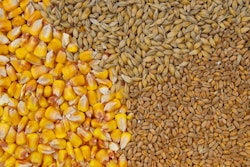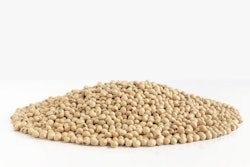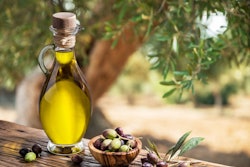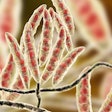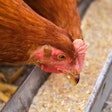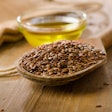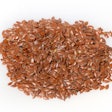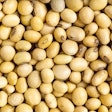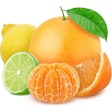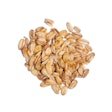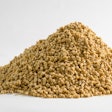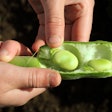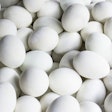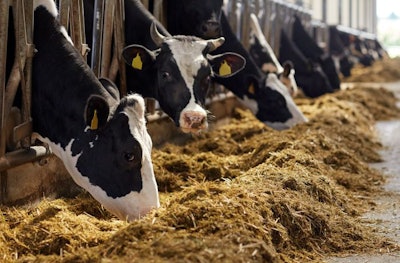
Can we abandon cobalt supplementation in ruminants in favor of straight vitamin B12 supplementation?
Cobalt is a trace mineral found in soils in very small quantities. Cobalt in plants is not considered an essential element, at least for the time being. Thus, most plant-based concentrated feeds and forages are markedly poor in cobalt. The only need for B12 in plant nutrition comes from bacteria that have a symbiotic relationship with certain plant species (legumes), but that part of the plant, the rhizome (roots) is not consumed by animals. Thus, monogastric animals require external vitamin B12, and ruminants require cobalt supplementation.
In animal nutrition, cobalt plays a central role as the core of vitamin B12. Thus, as plants do not provide sufficient vitamin B12 or cobalt, we routinely supply monogastric animals (poultry and pigs) with vitamin B12 as part of their regular vitamin and trace mineral premix. In the past, and in some cases this continues today, such premixes were supplied with cobalt in addition to B12, in the false belief that monogastric animals would benefit from the vitamin B12 synthesized by bacteria in their large intestine. However, this is not the case, and because cobalt is not entirely innocent, its supplementation in the diets for monogastric animals has been banned in the European Union. Lamentably, not all premixes have been updated.
This is not, however, the case for ruminant animals. Ruminants are routinely supplied with cobalt to aid synthesis of vitamin B12, by bacteria in the rumen. This is needed for bacterial growth per se because these bacteria are central in ruminant nutrition physiology. Later on, such bacterial B12 is absorbed by the animal, covering its needs. Modern thinking, however, has questioned this practice. Here is why.
Cobalt compounds used in animal nutrition are known biohazard materials at high concentrations, such as those used in premix plants. Thus, they should be handled with protective equipment because cobalt is a skin irritant and carcinogenic through inhalation. The use of cobalt, however, is still allowed in the European Union for ruminants, horses and rabbits, but in restricted concentrations. The same is true for the rest of the world, where cobalt is supplied often 10 times higher than requirements in all feeds for ruminants.
According to the latest NRC (2012) publication for beef cattle, cobalt requirements do not exceed 0.1 mg/kg of dry matter (DM) in a normal complete diet. On the other hand, cobalt toxicity concentration is not far removed from this number, although authorities are not exactly sure about the magnitude of difference. At any rate, no error in premix design is permissible when it comes to cobalt. Unfortunately, this has been the case in a recent project we were involved, where young beef cattle were basically refusing their concentrate feed as the premix company had made a simple mixing error by moving the decimal point in their calculations towards the wrong direction. By correcting this, the animals started consuming more feed again.
Today, it has been proposed we may be able to abandon cobalt supplementation in ruminants in favor of straight vitamin B12 supplementation. In our experience, beef cattle fed yeast metabolites perform exceedingly well, and this may be because they receive this rare vitamin directly and in ample quantities. However, this remains our hypothesis that we are testing under field conditions.

